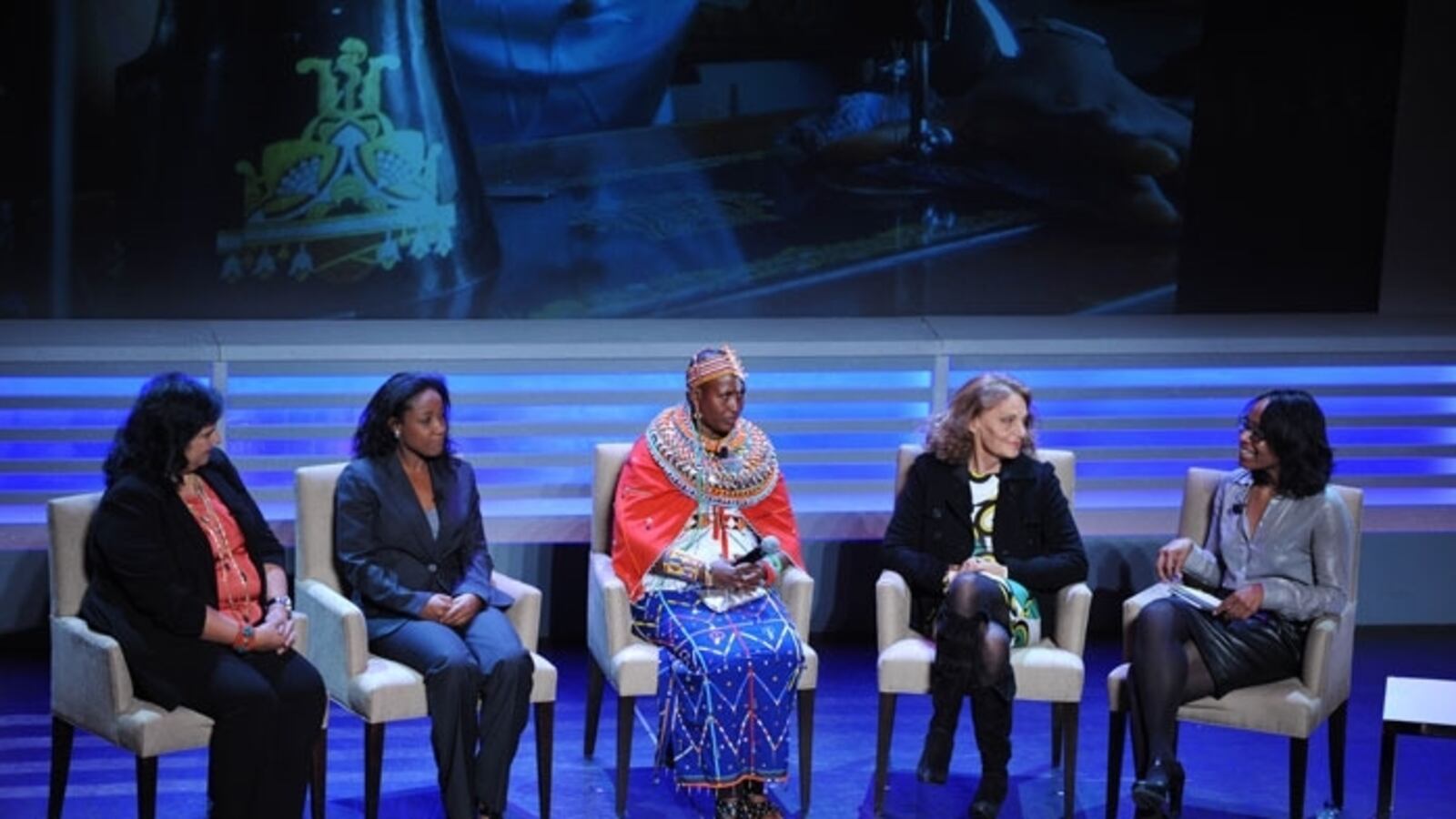For Rebecca Lolosoli, the head of an all-female sanctuary village in Kenya, “a determination to survive spawned a jewelry business.”

Perched on the Women in the World stage, the Kenyan designer was clad in an arresting fuschia cape, one of her signature, multi-layered drape necklaces, and a royal blue, tribal-patterned skirt with elaborate beading and bells that jingled as she shifted in her seat.In introducing Friday’s “Making a Must-Have Market” panel, Alyse Nelson, president and CEO of Vital Voices, shared Lolosoli's remarkable story and explained how, with the help of organizations like Vital Voices and fashion icon Diane von Furstenberg, women who lack personal resources have risen to become international fashion and jewelry designers.As a board member of Vital Voices, von Furstenberg was inspired to collaborate with Lolosoli after her stunning beaded necklaces caught her eye. "It’s a responsibility to work with these people, because the last thing you want to do is build people’s expectations and then abandon them like a soufflé,” she said.For Phelicia Dell, a Haitian single mother, designing clothes and handbags became a way to support her family after her husband died. She joined the Vital Voices chapter in Haiti, which led her to compete in von Furstenberg’s global handbag competition. “People look at me now and say, ‘Oh, if DVF says she’s good then she’s good.’ I don’t think she knows how much she has helped me as an artist.” Von Furstenberg reached over and squeezed Dell's hand.
Debbie Farah, founder and CEO of Bajalia International and Bajalia Trading Company, a nonprofit organization that helps women develop business and marketing skills, expanded on von Furstenberg’s sentiment about responsibility: “We want to be sure that the money [earned] goes back to their daughters’ educations.” She also stressed the importance of the heartbreaking yet inspirational stories behind the craftsmanship.“Yes, but that’s the beginning,” von Furstenberg responded. “As they establish more, I think it’s an evolution. At first you start with an individual and a story but maybe a few years from now Rebecca will come [here] and have a giant factory.” Touching Lolosoli's necklace, she stressed the importance of tradition in the women's designs: “Every color means something, every layer means something, and that is beautiful.”Indeed, as Lolosoli said early in the panel: “This is our life. It’s sustaining our villages. We depend on these jewelries. The way we are dressing makes us feel empowered.”






